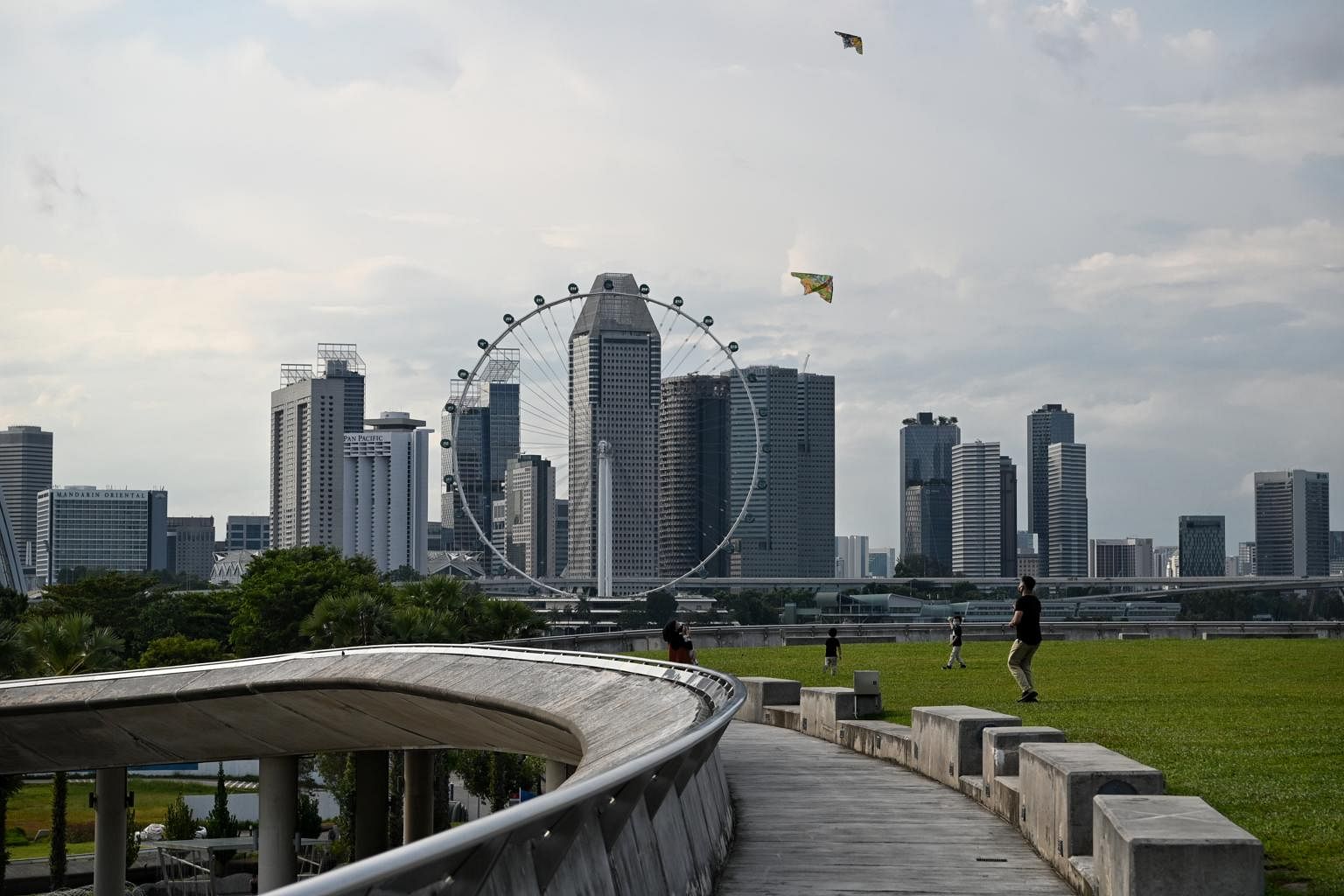Singapore's future needs, challenges growing much faster than reserves: Lawrence Wong
Sign up now: Get ST's newsletters delivered to your inbox

Finance Minister Lawrence Wong was asked at a Budget roundtable if Singapore was accumulating reserves faster than necessary.
PHOTO: KUA CHEE SIONG
SINGAPORE - Singapore is not building up its reserves any faster than required, but at a rate that tries to keep pace with the mounting complexity of its future needs and challenges, said Finance Minister Lawrence Wong.
The city-state's approach to accumulating reserves is not holding back the present-day economy either; and in the event of a crisis, the option of dipping into the "rainy day fund" remains, he added.
Speaking at a Budget roundtable organised by The Straits Times and The Business Times on Monday (March 14), Mr Wong pointed to the uncertain world that future generations would face, when asked if Singapore was accumulating reserves faster than necessary.
"The reserves may be growing, but the size of our economy, the complexity of our needs and the challenges we face in the future are growing faster, much faster," said Mr Wong.
He warned, as he did in his Budget round-up speech on March 2, against the temptation to dip, even if a little bit, into the "big pot of money" that was the reserves.
"You know the saying, how does a person go bankrupt? Two ways - gradually, then suddenly," said Mr Wong. "Eventually, it will all add up. And that's why virtually all cultures around the world have variants of the same saying, which is that wealth does not last three generations.
"And we are determined in Singapore not to let that happen to us but to keep on building something better for our children," he added. "The reserves rules ensure that we do that."
If Singapore starts on the premise of using more today, it is essentially telling the next generation to pay more taxes, said Mr Wong.
During the discussion, which came on the heels of two weeks of parliamentary debates on the Budget statement and ministries' spending plans, moderator and ST associate editor Vikram Khanna asked Mr Wong how Singapore decides on the appropriate balance between spending today and saving for tomorrow.
Mr Wong replied: "Are we unnecessarily holding back the economy today because we are putting more monies into the reserves? The answer is no… Where is our output gap today? No, we are at full potential. So from that macroeconomic point of view, no, we are not denying us opportunities today."
The reserves can also be used as a rainy day fund in times of crisis and emergencies, by going through the due process, he pointed out.
"We seek the President's approval, and we can use more than a 10 per cent or 20 per cent increase in the NIRC (Net Investment Returns Contribution)," said Mr Wong.
The NIRC framework allows the Government to spend up to 50 per cent of the net investment returns on net assets invested by sovereign wealth fund GIC, the Monetary Authority of Singapore and Temasek, and up to 50 per cent of the net investment income derived from past reserves from the remaining assets.
It would not be easy for the NIRC to keep pace with the economy, said Mr Wong.
"We have already said that projecting the NIRC forward, we think it will keep pace with the economy, and even to do that would be a significant achievement, given the headwinds that we see in the global investment environment," he said.
Noting that being prudent and disciplined was a virtue, he said Singaporeans should appreciate how their forefathers left behind reserves.
"They did not think along the lines of 'let's just optimise our consumption… and spend as much as we can'," said Mr Wong. "If we had 20 per cent less NIRC today because our forefathers spent more, the GST (goods and services tax) would have to go up another two percentage points to 11 per cent."
He had made similar points to rebut opposition MPs at the Budget debate, who had suggested raising NIRC spending to 60 per cent and including a proportion of proceeds from land sales in recurrent revenue as alternatives to raising the GST from 7 per cent to 9 per cent.
Mr Wong also defended the Government's approach of ploughing land sales proceeds into the reserves as more sustainable than directly spending them as part of revenue.
He listed two downsides to relying directly on land sales proceeds as revenue.
First, the highly volatile nature of land prices from year to year would render government finances unpredictable.
Second, there would be an incentive to keep land prices high to increase revenue.
First, the highly volatile nature of land prices from year to year would render government finances unpredictable.
Second, there would be an incentive to keep land prices high to increase revenue.
This is happening elsewhere in the world, noted Mr Wong. Mr Khanna and other panellists - UOB research head Suan Teck Kin and economics and finance professor Sumit Agarwal from the National University of Singapore - agreed, pointing to Hong Kong and other Chinese cities.
"Chinese cities also rely on land sales to support their spending," said Mr Suan. "And that causes a lot of problems for (the) local government."


